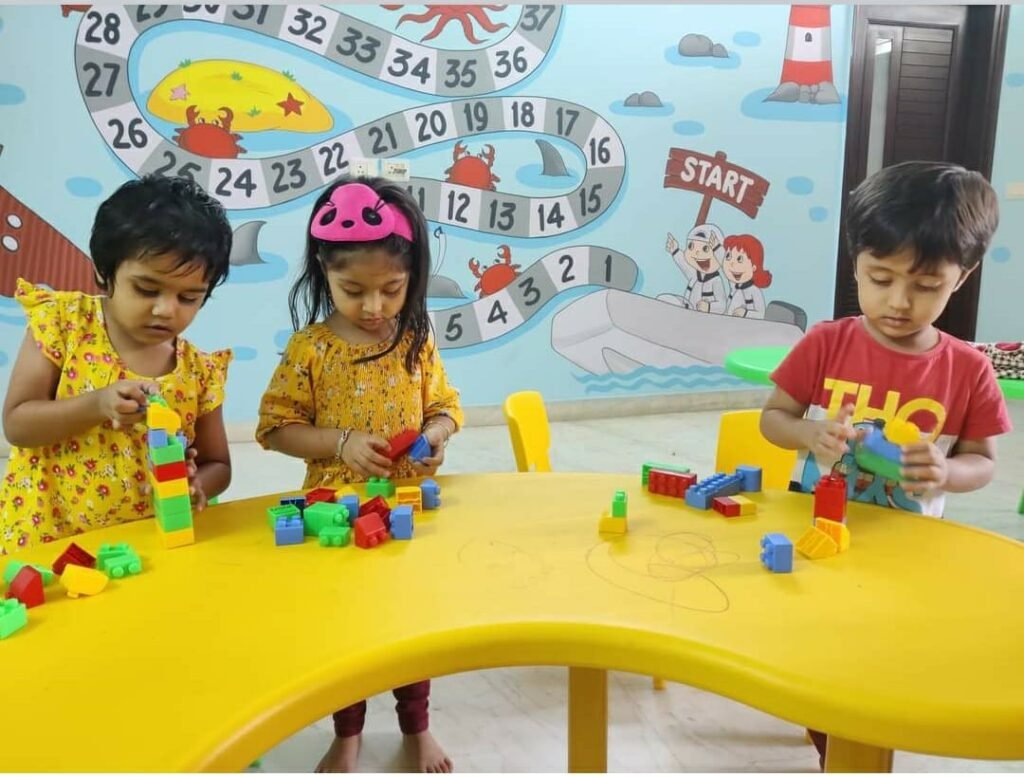Parental involvement in preschool education plays a crucial role in a child’s academic and social development. Engaged parents contribute to a positive learning environment, support their child’s progress, and build a strong foundation for future educational success. This article explores effective strategies for engaging parents in their child’s early learning journey and highlights the importance of parent-teacher communication and collaboration.
The Role of Parent-Teacher Communication and Collaboration
Effective parent-teacher communication is the cornerstone of parental involvement in preschool education. When parents and teachers work together, they create a supportive network that fosters a child’s growth and development. Here are some key aspects of this collaboration:
Open and Regular Communication
Establishing open and regular communication channels between parents and teachers is essential. This can include:
- Regular Updates: Providing parents with regular updates on their child’s progress, activities, and milestones through newsletters, emails, or a parent portal.
- Parent-Teacher Conferences: Scheduling regular conferences to discuss the child’s development, address concerns, and set goals.
- Daily Check-Ins: Brief conversations during drop-off and pick-up times to share important information and maintain a connection.
Building Trust and Respect
A strong relationship based on trust and respect encourages parents to be more involved in their child’s education. Teachers can build this relationship by:
- Listening to Parents: Valuing parents’ insights and concerns about their child’s needs and preferences.
- Respecting Cultural Differences: Being aware of and respecting cultural differences and incorporating diverse perspectives into the classroom.
Collaborative Goal Setting
Working together to set goals for the child’s development can help align efforts at home and school. This collaboration can include:
- Individualized Learning Plans: Developing tailored learning plans that address the child’s strengths, interests, and areas for improvement.
- Shared Responsibilities: Identifying specific actions that both parents and teachers can take to support the child’s growth.
Effective Strategies for Parental Involvement
Engaging parents in their child’s early learning journey requires a multifaceted approach. Here are some effective strategies:
Creating a Welcoming Environment
Making parents feel welcome and valued in the preschool setting is crucial for encouraging involvement. Strategies include:
- Open-Door Policy: Inviting parents to visit the classroom, observe activities, and participate in special events.
- Parent Resource Center: Establishing a dedicated space where parents can access educational materials, parenting resources, and information about the preschool.
Offering Volunteer Opportunities
Providing opportunities for parents to volunteer in the classroom or during school events can strengthen their connection to the preschool community. Examples include:
- Classroom Helpers: Inviting parents to assist with activities, read stories, or help with art projects.
- Event Volunteers: Encouraging parents to help organize and participate in events such as field trips, holiday celebrations, and fundraisers.
Providing Parenting Workshops and Resources
Offering workshops and resources on topics related to child development, education, and parenting can empower parents to support their child’s learning at home. Topics might include:
- Early Literacy and Numeracy: Teaching parents how to promote reading and math skills through everyday activities.
- Behavior Management: Providing strategies for addressing common behavioral challenges in young children.
- Healthy Habits: Sharing tips on nutrition, sleep routines, and physical activity.
Utilizing Technology
Leveraging technology can enhance parent-teacher communication and make it easier for parents to stay involved. Options include:
- Parent Portals: Online platforms where parents can access updates, view their child’s progress, and communicate with teachers.
- Mobile Apps: Apps that facilitate real-time communication, share photos and videos, and provide reminders about upcoming events and activities.
Encouraging At-Home Learning Activities
Promoting at-home learning activities that parents can do with their children reinforces the preschool curriculum and strengthens the parent-child bond. Ideas include:
- Reading Together: Encouraging parents to read with their child daily and discuss the stories.
- Hands-On Projects: Suggesting simple, fun projects that align with classroom themes and learning objectives.
- Play-Based Learning: Highlighting the importance of play in learning and providing ideas for educational games and activities.
Conclusion
Parental involvement in preschool education is vital for a child’s success and overall well-being. By fostering effective parent-teacher communication and collaboration, creating a welcoming environment, offering volunteer opportunities, providing workshops and resources, utilizing technology, and encouraging at-home learning activities, preschools can engage parents in meaningful ways. When parents and educators work together, they create a supportive and enriching environment that sets the stage for lifelong learning and development.


